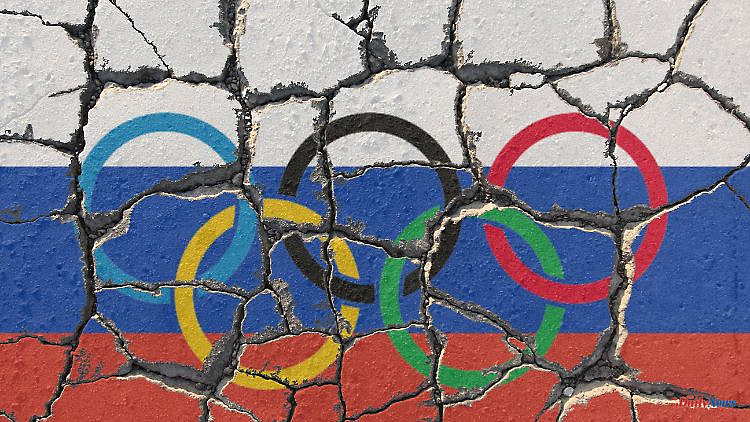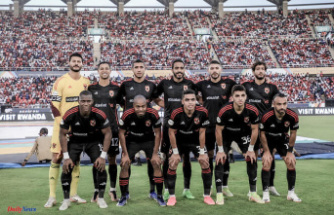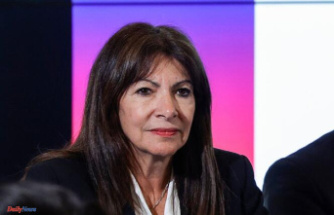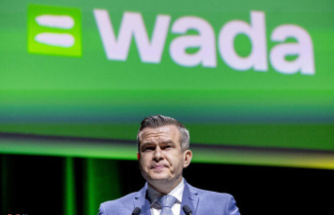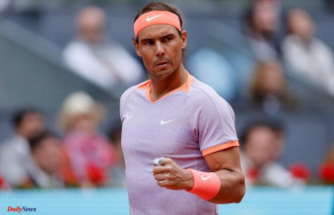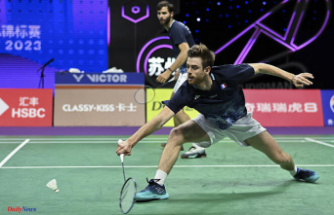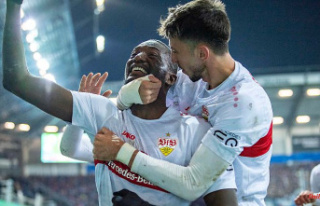Olympia under the sign of war: IOC President Thomas Bach wants "neutral athletes", the Ukraine reacts in horror - and from Russia comes the unabashed call for the lifting of all sanctions. The debate about the pros and cons is getting heated.
Stanislav Pozdnyakov is welcome at the International Olympic Committee, after all the head of the Russian NOC is part of the family. In December, when President Thomas Bach publicly endorsed plans for Russia's return to world sport for the first time, Pozdnyakov was among the guests at the summit. Now that Bach's ideas of "individual, neutral athletes without reference to a nationality" are gaining ground, Pozdnyakov presents his own ideas. While Ukraine is threatening to boycott the 2024 Summer Games in Paris, boxing icon Wladimir Klitschko Bach warns against becoming Russia's accomplice, and the tone is getting sharper towards Lausanne, Pozdnyakov spoke through the Russian news agencies.
He welcomes "the attempt" by the IOC to "enable our athletes to participate in international competitions and possibly the Olympic Games," said the former fencer. However, not under the "strict conditions" of the IOC. "Russians have to compete on exactly the same terms as any other athlete," he said. All other conditions are "undesirable, especially those with political overtones that are totally unacceptable to the Olympic Movement."
Flag, anthem, colours: all of that is part of it. Because: The Olympic Charter prescribes "that all athletes must participate on an equal footing". So also Russians and Belarusians, including many athletes in the service of the states, who do not let up in their brutal attacks on the Ukrainian civilian population, as Wladimir Klitschko made clear in a video message to Bach.
The former boxing world champion and Olympic champion from 1996 had himself filmed in front of a destroyed house and addressed Bach directly. "Today, Russians are Olympic champions in crimes against civilians. They win the gold medal in kidnapping children and raping women," Klitschko said. If Bach provided these crimes with the "Olympic badge", he made himself an "accomplice in this abominable war" and betrayed "the Olympic spirit". Bach had defended the IOC plans, arguing with the human rights requirements of the Olympic Charter and the United Nations. Excluding athletes "because of their passport" violates the principles. Bach relies on an "overwhelming majority" that he identified in the Olympic movement after "consultation talks".
Meanwhile, the criticism does not stop. Sometimes sharper, as from Zelenskyj's adviser Michailo Podolyak, who described the IOC as a "sponsor of war, murder and destruction", which the IOC "strongly" rejected. Sometimes more differentiated, as by Estonia's Prime Minister Kaja Kallas, who described Russia's sport as a "propaganda tool", dubbed the IOC plans "politically and morally wrong" and called for "strengthening isolation and not giving in to Russia". The Baltic states and Poland also clearly opposed the re-admission of Russian athletes on Tuesday. "We all agree that such a move should not be supported and is unacceptable as long as Russia, backed by Belarus, continues its unprovoked direct aggression against Ukraine," Latvian Foreign Minister Edgars Rinkevics said after meeting with his counterpart Urmas Reinsalu (Estonia), Gabrielius Landsbergis (Lithuania) and Zbigniew Rau (Poland) in Riga. "Our stance on the IOC management announcement is clear and very firm."
The sports philosopher Gunter Gebauer also attacked the IOC and its German President for Russia diplomacy. "It's a kowtow to Russia again," he told the German Press Agency. He considers the strategy pursued by Bach and the IOC Executive Committee to be "much too soft and flexible" towards Vladimir Putin's regime. "According to the statutes of the Olympic Games, the National Olympic Committee of a belligerent nation, especially if it is a war of aggression, cannot be invited to the Olympic Games," explained Gebauer. The solution sought by the IOC is typical of IOC boss Bach. "He's tactical and trying not to anger Russia," he said.
At the 2022 Winter Games in Beijing, it was shown that the appearance of the Russians meant that "neutrality did not last at all". According to Gebauer, the IOC's argument that athletes shouldn't be punished for their nationality doesn't apply: "Most of them are state-sponsored and are encouraged to show state solidarity and show it." As early as Friday, the argument about a return to Russia could turn into a debate about a boycott of the Paris games. The National Olympic Committee of Ukraine wants to hold a general assembly to discuss whether the country should not take part in the summer games if Russian athletes are admitted.
This could be followed by a wave of boycotts by other countries out of solidarity with Ukraine. Sports expert Gebauer considers an Olympic boycott by countries like Germany to be the wrong approach on this issue. Previous forms of boycotts, such as in Moscow in 1980 and in Los Angeles in 1984, had been relatively unsuccessful and had rather given the other side free rein, he said. A boycott would "not bother the Russians at all, the main thing is that they can lead the medal table," said Gebauer.

